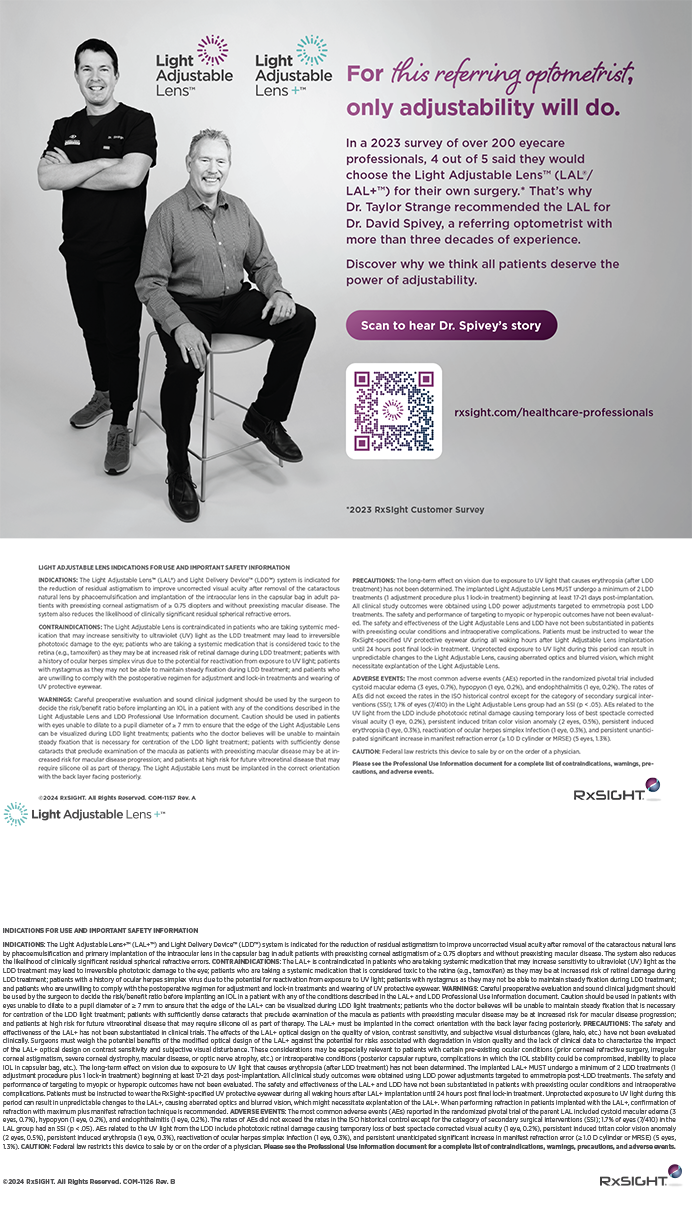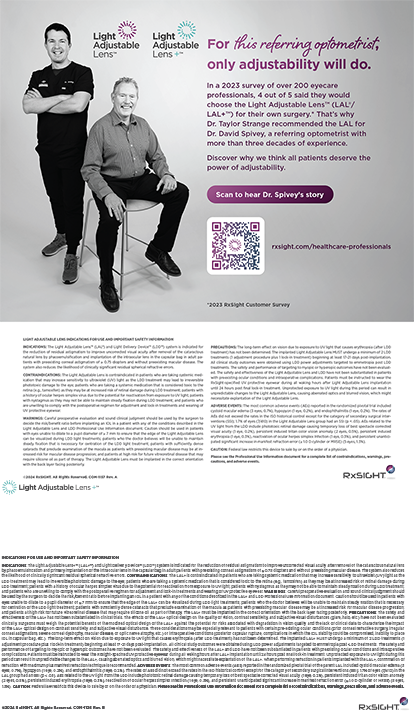Most of us are up for a challenge. It is probably why we went into medicine and, more specifically, into ophthalmology. It is why we enjoy performing refractive corneal and lenticular surgery, why we push the limits of modern technology, and why we are constantly looking for better outcomes for our patients. My newest challenge is to fill the giant shoes (no pun intended) of Eric Donnenfeld, MD, as the incoming Chief Medical Editor of CRST. Eric is truly a gentleman and a scholar. His tireless energy for teaching and moving our profession forward is an inspiration. His pioneering nature, professionalism, and sharp mind never cease to amaze me. Like Eric and his predecessors at CRST, I hope to help my fellow chief medical editor Steven Dell, MD, provide readers of this best-in-class publication with innovative, relevant, thought-provoking, and beneficial information.
As a group, we ophthalmologists face a challenge that is rooted neither in what we do best nor what we enjoy: the mandated use of electronic health records (EHRs). In response to The Health Insurance Portability and Accountability Act (HIPAA), the Department of Health & Human Services published a Privacy Rule in December 2000 that went into effect on April 14, 2001. I recall that its enactment was a big deal, involving more paperwork for patients to sign, new rules regarding communication, and an increase in the time, energy, and money expended on practice infrastructure for the so-called patient benefit. In essence, I remember HIPAA as something that made the clinic less efficient without improving outcomes or care. Little did I know that HIPAA was the tip of the iceberg.
Most of us are now implementing or using EHRs, and I would be shocked if anyone reading this editorial had not experienced frustration, inefficiency, or another problem with the process. Transitioning to EHRs is not the type of challenge that I enjoy. It has been more than 1 year since my practice completed the painful process of implementation. The good news is that I feel like I am now as efficient as before implementation. Patients' care is again my focus, and I am starting to recognize some aspects of EHRs that can make accessing patients' data easier. That said, I think the jury is still out on whether EHRs will truly benefit patients in the long term. Will this software allow us to practice better medicine? Whatever the answer, the financial drain and time burden on a practice can be staggering.
In this issue of CRST, several insightful colleagues describe the ups and downs and the ins and outs of EHRs. Among the articles are a summary by Jonathan Myers, MD, of a peer-reviewed study on the technology, and an explanation by Robert Rivera, MD, of why he has decided not to adopt EHRs. My father, Stephen Weinstock, MD, who has been in practice for more than 40 years, shares an interesting story of the challenges of implementing EHRs and electronic practice management software in a large multispecialty practice. Timothy McGarity, MD, provides the complementary perspective of the sole surgeon at a small ophthalmology practice. Gregg Garretson, MBA, an information technology expert on software integration, highlights some of the main reasons why so many of us have been hard pressed to make EHRs successful in our practice. I hope that these articles and more are of benefit to you and your practice.n
Robert J. Weinstock, MD
Chief Medical Editor


